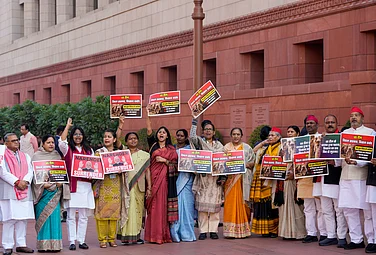The UN refugee agency has issued a stark warning, cautioning that Afghans crossing the border from Pakistan could face life-threatening conditions this winter without adequate shelter, as reported by the Associated Press.
In a report released on December 8, the UN refugee agency highlighted the vulnerability of many Afghan returnees, particularly women and children, who could be at risk of losing their lives in the harsh winter without proper shelter. The agency emphasised the urgent need for assistance and psychosocial support for those arriving at the border.
"People arriving at the border are exhausted and require urgent assistance as well as psychosocial support," stated the UN refugee agency in its report.
Families interviewed by the agency expressed concern about the colder winter temperatures, especially in mountainous regions, potentially hindering their immediate return home.
Winter Threatens Afghan Refugees in Wake of Islamabad's Immigration Crackdown
The current plight of Afghan refugees follows Islamabad government's recent measures to address the issue of illegal migration. Since early October, approximately half a million Afghans have left Pakistan, responding to the government's announcement of stringent actions against individuals considered to be in the country illegally.
Although the order ostensibly applies to all foreigners, Afghans, constituting the largest group of refugees in Pakistan, find themselves disproportionately affected. The government's directive, issued with an October 31 deadline, mandated the departure of illegal migrants under the threat of arrest and expulsion.
In the lead-up to the deadline, authorities initiated the apprehension of those lacking proper documentation, with some even witnessing the demolition of their homes to compel them to leave.
Pakistan is home to over 4 million Afghans, with an estimated 1.7 million of them deemed undocumented by the government. Many of these migrants sought refuge in Pakistan during the 1970s amid the Soviet war in Afghanistan. Having little connection to, or opportunities in, their country of origin, and with some being born in Pakistan, the challenges of obtaining legal documents are exacerbated by the lengthy bureaucratic process.
In defence of its actions, Pakistan argues that it has a sovereign right to safeguard its economic interests and security. With the nation facing economic challenges, the government contends that undocumented migrants, who contribute no taxes, strain its already scarce resources.


























